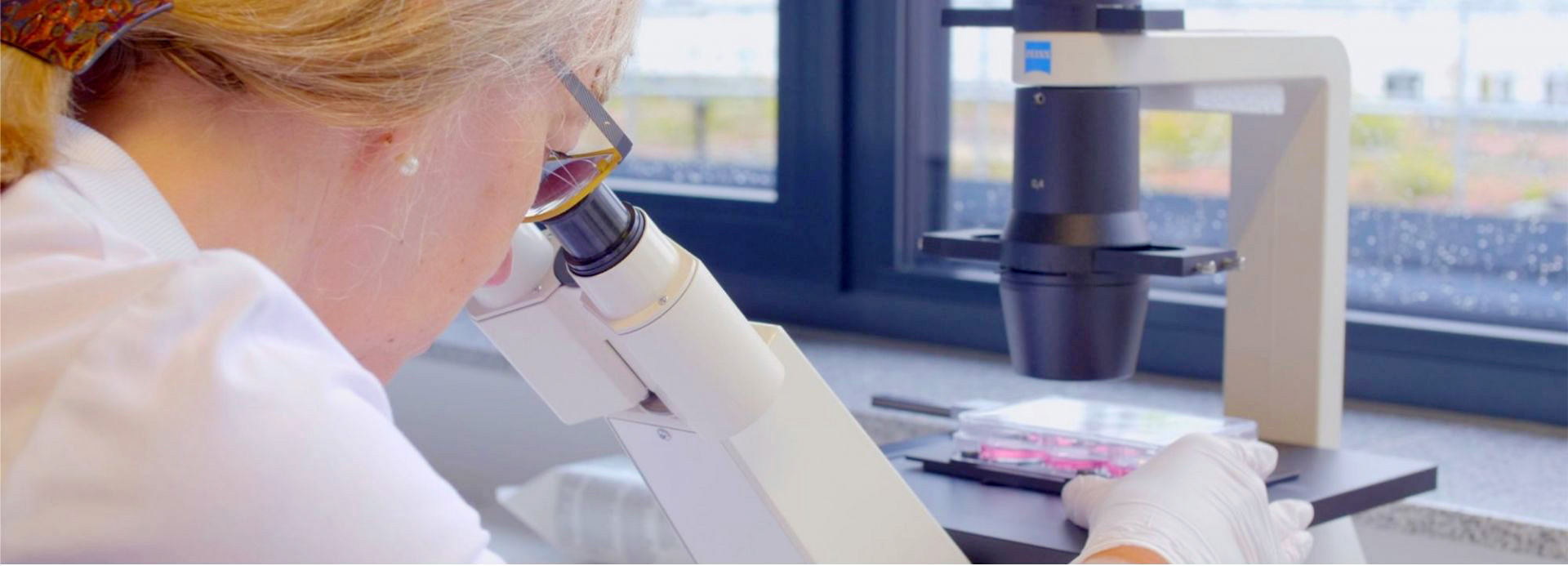Research
Research: Genetic Research, Genetic Testing
Molecular-biological and genetic research into the causes, diagnosis and treatment of a whole range of diseases such as cancer or hereditary disorders is a major element in the activities of university hospitals. Genes contain the blueprints for all cells and organs in the human body. Changes (e.g. mutations) in these genes can contribute to the development of a multitude of diseases. The decoding of these genes and their changes has already lead to a better early diagnosis and treatment of certain diseases.
Research on the Pancreatic Cancer
In cooperation with The European Pancreas Center in Heidelberg the St. Josef-Hospital Bochum and the Pancreas Center Nordrhein-Westfalen have been intensively engaged in research into the molecular and genetic changes involved in a variety of forms of cancer. Pancreatic cancer has been on the forefront of this research. A number of important discoveries relating to the causes of this form of cancer have been made, and new methods of treatment have been devised, some of which have already been successfully tested on animals. Some of the findings made in the course of this research are explained below.
Survival chances in cases of pancreatic cancer are very low and the disease has been on the rise in recent years. Continually improved methods of diagnosis have lead to successes in detecting the disease earlier and in more patients. Pancreatic cancer is a highly aggressive disease and comes in 5th place on death statistics of malignant tumours.
Chances for a cure
Total surgical removal of the tumour is the only form of treatment with the chance of a cure. Sadly, chemotherapy and/or radiotherapy appear to have only a negligible effect on prolonging the life of the patient. However, these therapies can reduce the size of the tumour, improve life quality and ease pain for many patients.
The reasons for the aggressive growth of pancreatic cancer cells have yet to be fully explained.
Molecular-biological studies on human pancreatic cancer cells in the 80s emphasised the importance of the role of growth factors (factors which accelerate growth in various cells, but mainly cancer cells) in the development of pancreatic cancer. These accelerate the growth of a range of cells and in particular cancer cells and are found in markedly increased numbers in pancreatic cancer. It has also been observed that factors which normally inhibit the growth of cells or lead to cell death are either found in lower numbers or have been impaired in their function by genetic changes. These factors therefore can no longer slow the growth of the pancreatic cancer cells.
In addition cancer cells produce factors, which enhance their own ability to invade the surrounding healthy, tissue and other organs and form secondary tumours (metastases).

Molecular-biological Research
In recent years molecular-biological research in our own and others clinics has contributed to a marked increase in our understanding of what causes pancreatic cancer.The increased presence of growth factors and a host of other molecular changes give pancreatic cancer cells a considerable growth advantage, which enhances the progress of the disease and which could be responsible for the failure of the tumour to respond to chemotherapy or radiotherapy. In the meantime a range of studies has been able to show that an increasingly aggressive behaviour of pancreatic cancer and a shorter post-operative life expectancy is linked to molecular change in the cancer cells. Understanding these processes will possibly lead to effective medication.
More effective Therapies
Further research may lead to future success in treating cancer patients with a more effective therapy. In recent years new methods of treatment based on molecular research have opened up paths for genetic therapy. These are on offer for cancer patients at the Pancreas Center at St. Josef-Hospital Bochum. The Center also focuses on research into genetic defects in patients with a family history of pancreatic cancer, as well as the inherited form of pancreatitis.
